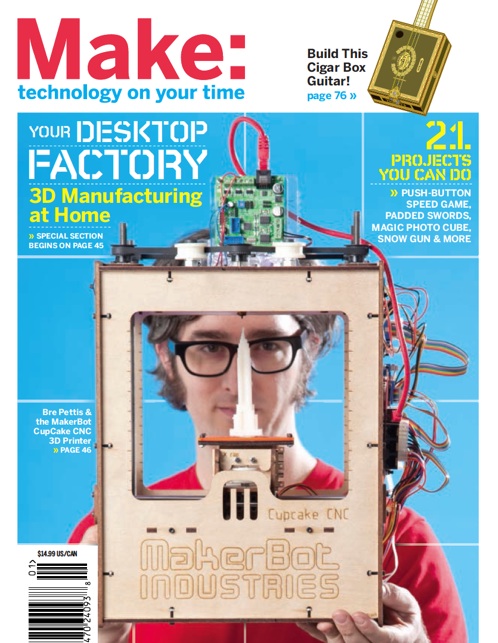Open Design Philosophy Case Study
27 Jan 2016"It is not only designers who are participating in open design: In principle, everyone can participate."-Caroline Hummels, Industrial Designer.
This quote greatly resonates with the core ethos of the Open Design and Open-Source movements. The Open Source philosophy operates on the concept of allowing software, hardware, and manufacturing techniques to be freely available and modifiable to a global community, hence allowing the promotion of education, development and innovation. Presented below are two case studies that exemplify the values within Caroline Hummels' quote.
MakerBot Industries

MakerBot Industries was an active proponent of Open Source enterprises, in particular addressing the area of additive manufacturing. 3D printing technologies were in development and in use since the 1980's within heavy industry and research, yet it was only at the turn of the 21st century that it began to garner mainstream attention. Makerbot Industries, which was fronted by Bre Pettis, Adam Mayer, and Zach Smith, began as a venture under the non-profit Open Source 3D printing research initiative known as the RepRap Research Foundation.

Their first product, the 'Cupcake CNC', was released in 2009. The source files and documentation were uploaded onto Thingiverse, a website dedicated to the sharing of user created digital design files. This allowed the public to freely participate in the manufacture of a product that subsequently expands the horizon of household manufacturing. The Open Source nature of the product naturally resulted in the troubleshooting and improvement of the design from the community, hence allowing upgrades with each production batch.

MakerBot Industries has since created a number of new products, including the Thing-O-Matic, the Replicator 1 and 2, the Digitizer 3D scanner, and many more. As a pioneering force, MakerBot has enabled the public to interact with previously unaccessible technology through the Open Source philosophy.